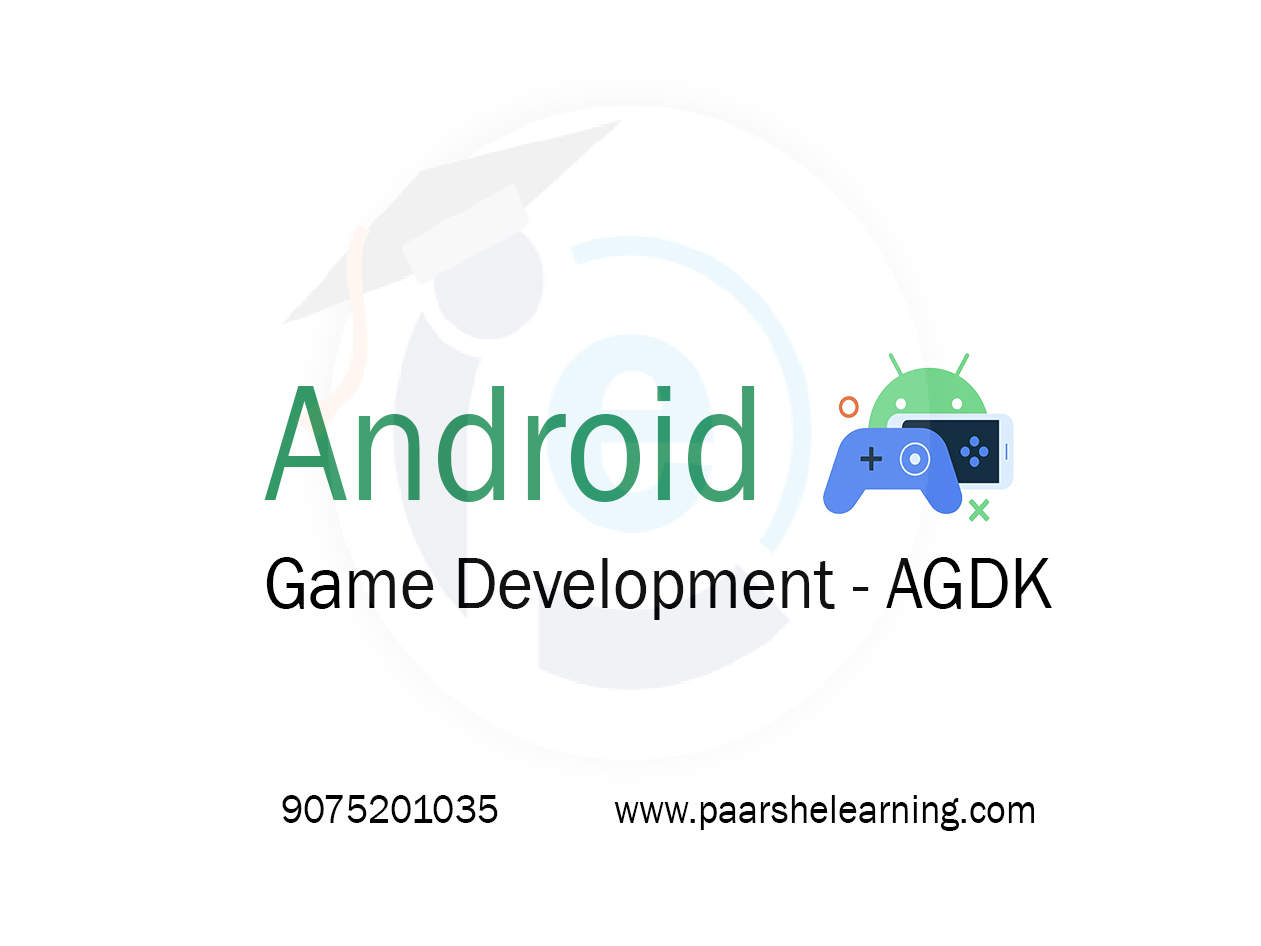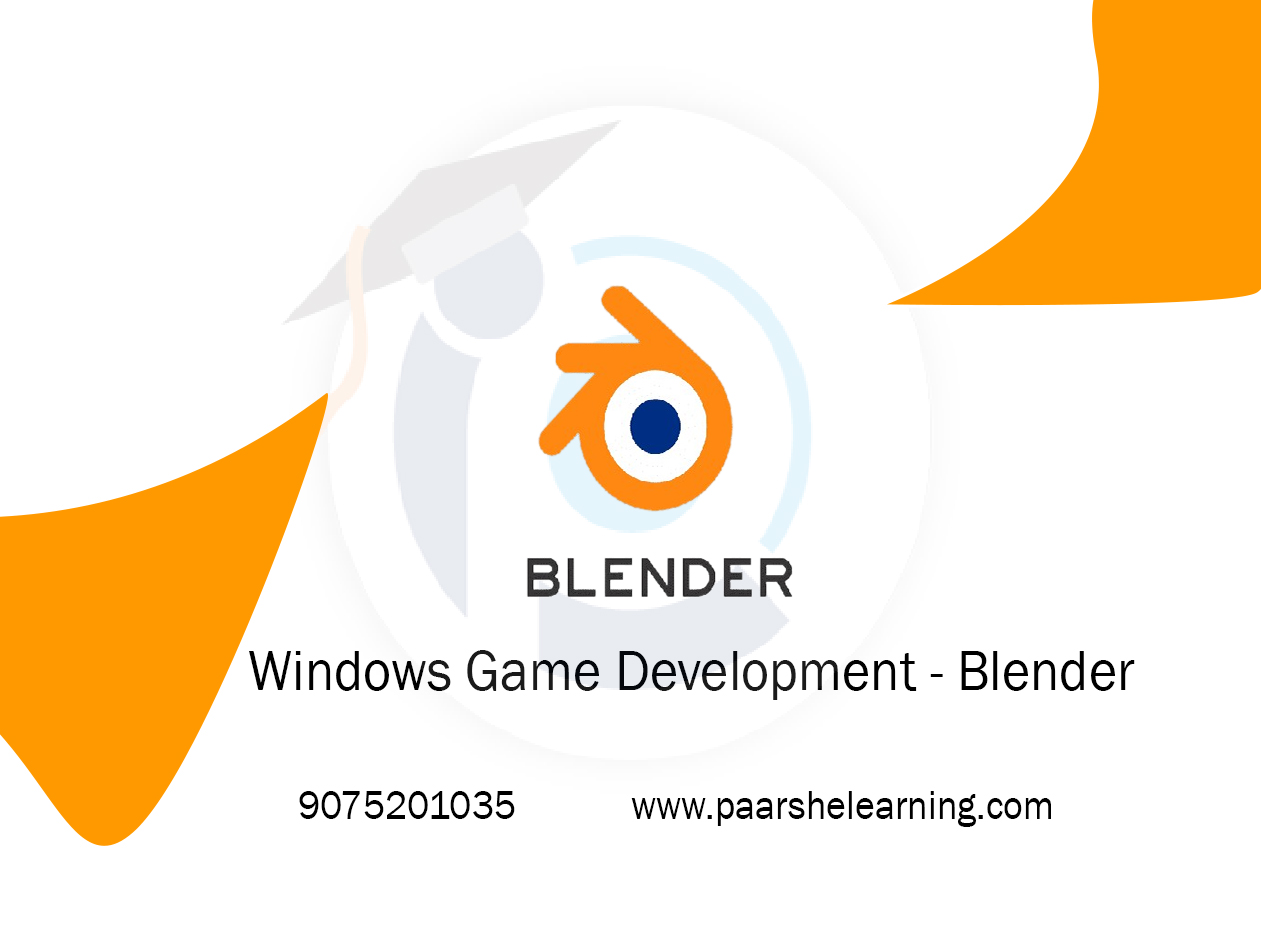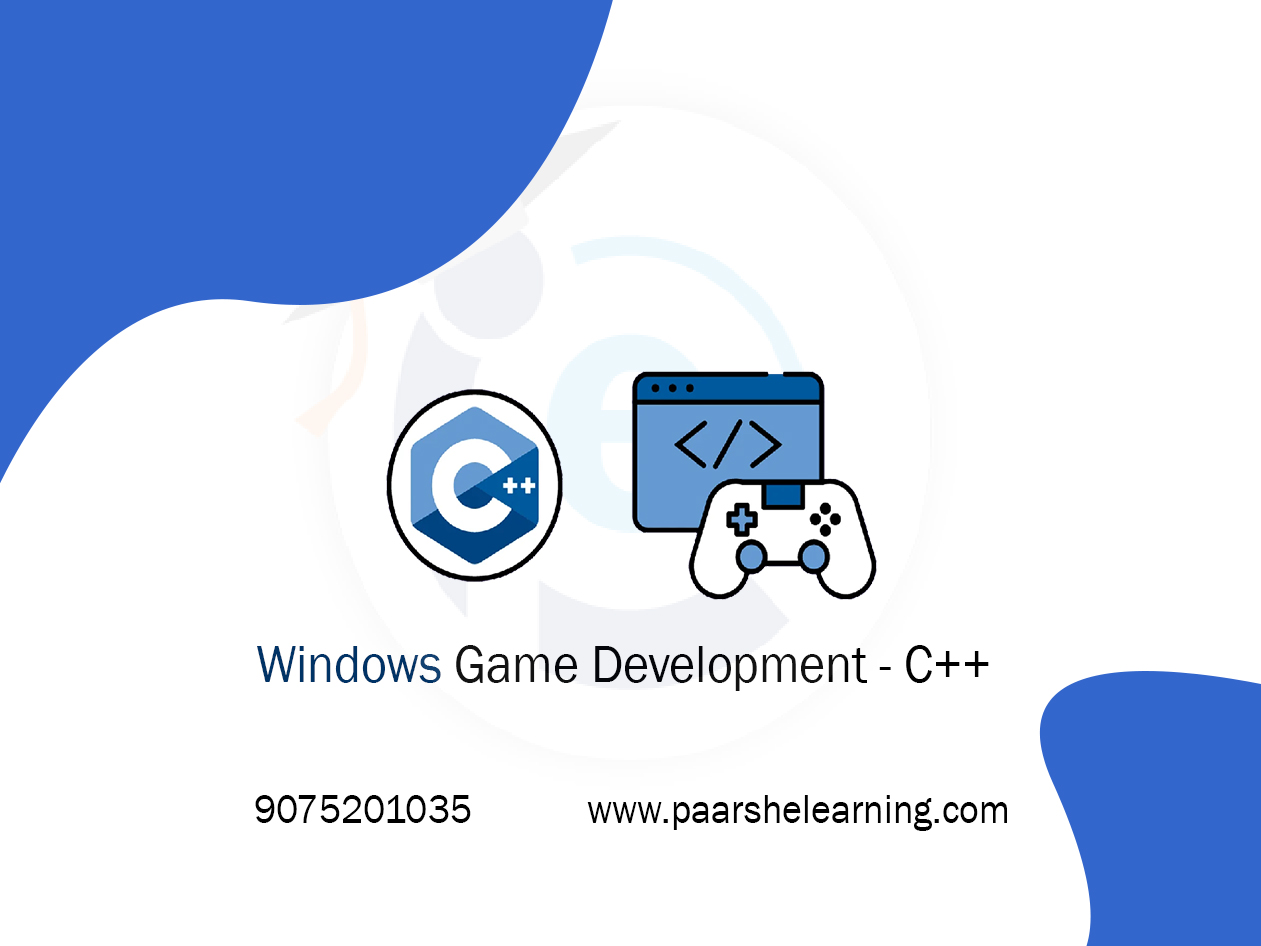- The fundamentals of game development, including game mechanics, game design, and game engines
- How to use the Unity game engine to develop Android games
- How to use the Unity game engine to develop Android games
- 2D and 3D graphics, including sprite creation, animation, lighting, and camera perspectives
- Game physics, including rigid bodies, collisions, and forces User input, including touch controls, buttons, and menus Audio, including sound effects and music
- How to integrate advertising, in-app purchases, and social media sharing into your game
- How to publish your game to the Google Play Store
Android Game Development - AGDK
Course description
Android Game Development Kit (AGDK) is not a well-known term or widely recognized acronym in the field of Android game development. However, there are various tools, frameworks, and resources available for developing games on the Android platform. Here are some key components and technologies commonly used in Android game development:
-
Android Studio: Android Studio is the official integrated development environment (IDE) for Android app development. It provides a rich set of tools and features specifically tailored for developing Android games, including code editing, debugging, performance profiling, and emulator support.
-
Java or Kotlin: Android games can be developed using either the Java or Kotlin programming languages. Java has been the traditional language for Android development, while Kotlin is gaining popularity for its concise syntax and enhanced features. Both languages are fully supported by the Android platform and have extensive libraries and resources for game development.
-
Android Game Frameworks: There are several game development frameworks available for Android that simplify the process of building games. Some popular frameworks include:
-
Unity: Unity is a powerful and widely-used game engine that supports multi-platform game development, including Android. It provides a visual editor, scripting support, and a vast ecosystem of plugins and assets.
-
LibGDX: LibGDX is an open-source game development framework that allows developers to write games in Java and deploy them on multiple platforms, including Android. It provides APIs for graphics rendering, input handling, audio, and more.
-
Cocos2d-x: Cocos2d-x is a cross-platform game engine that supports C++ and allows developers to create games that run on Android and other platforms. It provides a rich set of tools and libraries for 2D game development.
-
Godot Engine: Godot Engine is a popular open-source game engine that supports both 2D and 3D game development. It has its scripting language called GDScript, but it also supports other languages such as C# and VisualScript.
-
-
Android Game Development APIs: Android provides various APIs and libraries specifically designed for game development, including:
-
Android Game SDK: Google provides the Android Game SDK, which includes libraries and tools for developing high-performance games on Android. It includes the Android Performance Tuner, Frame Pacing API, and more.
-
Android NDK (Native Development Kit): The Android NDK allows developers to write performance-critical portions of their game in C or C++. This is particularly useful for implementing graphics rendering, physics simulations, or other computationally intensive tasks.
-
Google Play Games Services: Google Play Games Services provides APIs for implementing features such as achievements, leaderboards, real-time multiplayer, and cloud saving in Android games.
-
-
2D/3D Graphics and Animation: Android offers powerful graphics and animation capabilities for game development, including support for OpenGL ES for 3D rendering and the Canvas and OpenGL APIs for 2D graphics. The Android Animation API enables developers to create smooth animations and transitions within games.
-
Audio and Input Handling: Android provides APIs for handling audio playback and recording in games. It also offers input handling mechanisms for touch events, accelerometer data, gyroscope data, and other sensors available on Android devices.
-
Game Testing and Deployment: Android provides tools and features for testing and deploying games, including the Android Emulator for testing on virtual devices, device-specific testing, and optimization.
What you will learn from this course?
This course includes!
- Daily Live session
- A recorded session with problem-solving material
- Access on Mobile and TV
- Certificate of completion
- Recommendation Letter
- 100% Job Placement
- Free lifetime access
This course is for
- The Android Game Development - AGDK course is for anyone who wants to learn how to develop games for Android devices.
- This includes beginners who have no prior programming experience, as well as experienced developers who want to expand their skills into game development.
- The course is also ideal for students, hobbyists, and entrepreneurs who want to create their own Android games for personal or commercial use.
- Students who enjoy development projects
- Beginner Developers: If you are new to programming or game development, this course can provide a solid introduction to the concepts, tools, and techniques used in Android game development. It can help you understand the fundamentals and get started with creating your own games.
- Android Developers: If you already have experience in Android app development and want to expand your skill set into game development, this course can help you transition smoothly. You can leverage your existing knowledge of Android development to dive into the specific aspects of game programming and create engaging gaming experiences.
- Aspiring Game Developers: If you have a passion for game development and want to focus on creating games for the Android platform, this course can serve as a practical guide to understanding the unique considerations and challenges involved in Android game development. It can help you gain the necessary skills to bring your game ideas to life.
Prerequisites for this course
- Programming Knowledge: Basic understanding of programming concepts is essential. Familiarity with a programming language such as Java or Kotlin, which are commonly used for Android development, will be beneficial.
- Object-Oriented Programming (OOP): Understanding the principles of object-oriented programming, including concepts like classes, objects, inheritance, and polymorphism, will help you write clean and maintainable code.
- Java or Kotlin: Android game development can be done using either Java or Kotlin. Having knowledge of either programming language will allow you to understand and implement game logic, handle events, and work with the Android framework.
- Android Development Basics: Familiarity with the fundamentals of Android app development is necessary. Understanding activities, views, layouts, intents, and the Android application lifecycle will provide a solid foundation for game development.
Android Game Development - Agdk Syllabus
-
Introduction To Android Game Development And Agdk
Understanding the basics of game development for Android Introduction to AGDK and its features Setting up the development environment with Android Studio Creating a simple "Hello World" game using AGDK
-
Game Design Principles And Basics
Introduction to game design concepts Understanding game loops and the game development process Building basic game mechanics and interactions Implementing game logic and player controls
-
Graphics And Animation
Working with 2D graphics in AGDK Creating sprites and animations Implementing character and object movement Using AGDK tools for animation and visual effects
-
User Input And Touch Interactions
Handling user input using touch events Implementing touch gestures: tap, swipe, pinch Designing intuitive and responsive user controls Testing and optimizing touch interactions
-
Physics And Collision Detection
Implementing basic physics in games Simulating gravity, acceleration, and collisions Using AGDK's physics engine for realistic interactions Creating game scenarios with collision detection
-
Audio And Sound Effects
Integrating audio elements into games Implementing background music and sound effects Using AGDK features for audio playback and control Enhancing gameplay experience with audio
-
Advanced Topics In Game Development
Introduction to 3D graphics and rendering with AGDK Exploring advanced animation techniques Integrating third-party libraries for extended functionality Implementing game analytics and user engagement
-
Game Deployment And Final Projects
Testing and debugging Android games on emulators and devices Building APK files and deploying games to the Google Play Store Working on individual or group final game projects Final game presentations and evaluations
-
Paarsh E-Learning encourages hands-on practice and projects throughout the course to reinforce students' understanding of Android game development using AGDK. Assigning practical assignments and projects will help students apply what they've learned. Make sure to cover both the theoretical foundations and practical implementation of Android game development.





